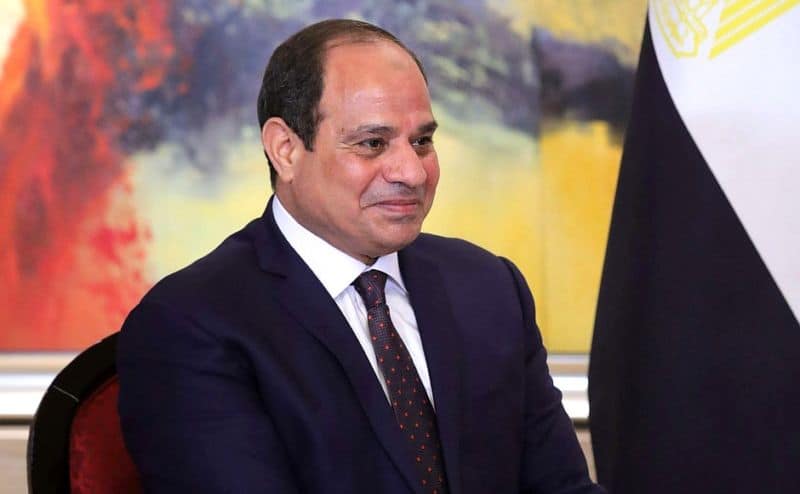Cairo: After years of anxiously waiting in cramped prison cells, appointments with the noose can come fast to the many on Egypt’s death row.
Leila’s brother Amr was hanged in February.
The news of his impending execution — one of many carried out under incumbent President Abdel Fattah al-Sisi — shook her.
“I found out at night that he would be hanged the next day,” Leila told AFP, which has used pseudonyms in this story to protect families’ identities.
“We were all in shock. My mother was hysterical,” Leila said.
“It was a very tough night. I wouldn’t wish it on anyone”.
Amr was accused, along with eight others, of assassinating former prosecutor general Hisham Barakat, who was killed in a car bomb in June 2015.
Leila said Amr was preparing to get married — buying suits and readying a new home — when he was arrested in February 2016, in the family residence in a major southern Egyptian town.
She alleges he disappeared for two weeks, and that the family only found out where he was thanks to lawyers, and relatives of other prisoners.
Amr said she saw signs of torture, including scars, on her brother’s body during jail visits.
Executions — always by hanging — have risen sharply under Sisi, who won a second term in March last year.
So far this year, fifteen people have been executed in two separate trials, calculations by AFP show.
And between early 2017 and late 2018, Egypt executed 92 people, according to a recent report by local rights groups Egyptian Initiative for Personal Rights and Adalah for Rights and Freedoms.
These numbers are far higher than for previous governments, including that of former dictator Hosni Mubarak, who was deposed in the 2011 Arab Spring protests.
A total of 11 people were executed in the last three full years of Mubarak’s rule, according to Amnesty International.
– ‘Arbitrary killings’ –
At a February summit with European Union leaders in the resort town of Sharm El Sheikh, Sisi vehemently defended use of the death penalty.
“You are not going to teach us about our humanity…respect our humanity…as we respect yours,” he said.
The United Nations’ Special Rapporteur on executions Agnes Callamard told AFP the increased “use of the death penalty … (constitutes) arbitrary killings” that are designed to crush dissent.
AFP spoke to families of men executed, and others who are on death row.
After the Sisi-led military ouster of Islamist president Mohamed Morsi in July 2013, experts note Egyptian judges have been more authoritarian, in line with an ongoing government crackdown which has incarcerated thousands.
“We are witnessing a rise in death sentences from tens per year before 2011 to hundreds per year after 2013,” Sahar Aziz, a law professor at Rutgers University, told AFP.
London-based rights group Reprieve estimates that at least 2,159 individuals were provisionally sentenced to death between 2014 and 2018.
Hundreds of sentences have subsequently been commuted, but many remain on death row.
In March 2014 — just prior to Sisi’s elevation to the presidency in June that year — the UN said Egypt’s mass death sentences contravened international law.
The Egyptian legal system is based on Islamic sharia law, which legitimises capital punishment.
A high level Egyptian judicial source with knowledge of the death sentences handed down said “there is no politicisation of these cases whatsoever”.
“We are implementing Islam according to its laws and you’re getting upset? If you are a terrorist who killed, then you must also be killed,” he told AFP.
He preferred not to be named as he was not authorised to speak to the media.
An Amnesty report this week ranks Egypt sixth globally in the number of people executed in 2018 behind China, Iran, Saudi Arabia, Vietnam and Iraq.
Many of the death sentences were handed down at mass trials involving hundreds of defendants and lasting just days.
– ‘Taste of injustice’ –
“How many court sessions are needed to ensure that every prisoner is given a fair trial to explain their side of the story?” said Osama.
His father Abbas Al Minyawi is on death row (names have again been changed to protect identities).
He was one of 183 defendants accused of storming a Cairo police station and killing 11 policemen and two civilians.
Minyawi and 19 others in the ‘Kerdasa massacre’ case do not know when they will be executed.
“My dad was sentenced to death — and also my mother in a way was also condemned to die with this news,” Osama told AFP.
“The taste of injustice is bitter,” he added.
The “troubling speed” at which the death penalty has been used indicates that Egypt’s legal process has been politicised as part of the authorities’ crackdown, law professor Aziz contended.
UN special rapporteur Callamard said “the circumstances leading to the imposition of these sentences and their execution are a great matter of concern”.
She also blamed international powers for failing to hold Egypt accountable over its flagrant use of capital punishment.
“This (international) deafening silence has become an integral part to the spiralling human rights violations in Egypt”.
For the relatives of those executed, such as Leila, painful memories endure.
“He wasn’t the same person I remember when I saw him in the morgue,” Leila said of her brother.
“He was so beautiful. He was sleeping peacefully.”
[source_without_link]AFP[/source_without_link]

